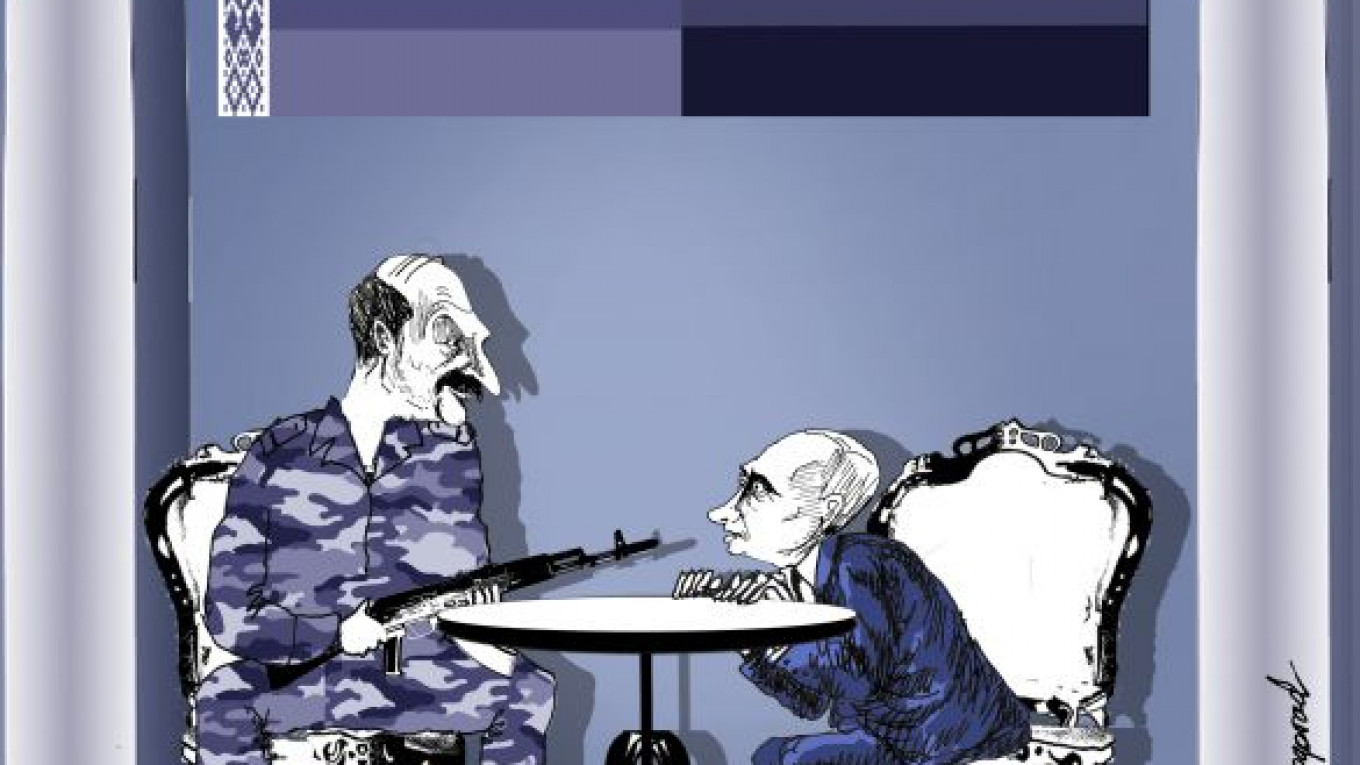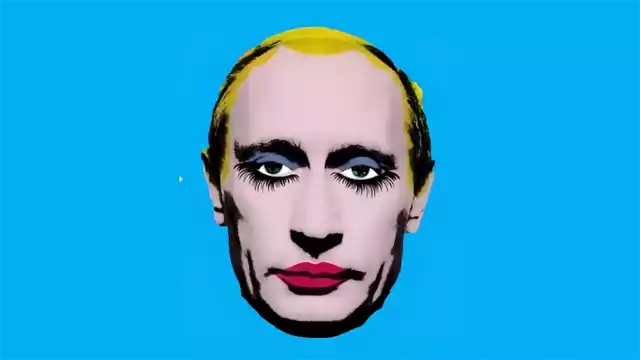A dream has come true for Russians who thought that their country was incapable of protecting its citizens and sending aircraft carriers to their defense. No sooner had Belarussian dictator Alexander Lukashenko detained visiting Russian businessman Vladislav Baumgertner than Moscow sent special forces and thousands of troops to that country. Unfortunately for Baumgertner, those soldiers had not come to free him but to take part in West 2013, the year's largest military exercises. And the scenario of these maneuvers is shockingly "realistic."
In these games, Belarussian border guards detect a battalion of 600 commandos attempting to cross the border, and although the guards put up stiff resistance, the commandos ultimately break through into Belarussian territory. After that, the battalion takes a serious hit from a detachment of old but battle-ready military aircraft that drop 250 kilogram bombs on their convoy from an altitude of 200 meters. Despite the battering, the tenacious column of invaders moves forward. They are subsequently attacked in turn by a battery of mechanized guns and motorized infantry reinforced by special forces. As silly as it sounds, the commandos bounce back after each onslaught, finally making their way to a town where they take hostages. Only at that point are they finally wiped out by anti-terrorist units.
All this is reminiscent of the movie "The Terminator" in which the "bad guy" keeps coming back to life every time he is killed. At first glance, the whole idea of a battalion that will not die no matter how often it is attacked seems rather ludicrous. But if you put yourself in the shoes of the people who planned these war games, you would realize it would have been impossible to use the classic scenario in which the "blue" forces attack "red" troops who repel the offensive and, predictably, end up winning. In that case, the Baltic states and Poland would say that Moscow and Minsk were preparing an invasion. At the same time, the games must give Russian and Belarussian leaders a chance to show off their tanks, armored vehicles, dive bombers and helicopters, letting them rain missiles down on the enemy. For that, it was necessary to come up with a ridiculous scenario in which Russia and Belarus use everything short of nuclear weapons to stop just 600 terrorists. In addition to the West 2013 maneuvers, planners created the Cooperation 2013 games involving the special forces of all Collective Security Treaty Organization member states. In those maneuvers, Kazakh troops fight extremists in Belarus. I leave it to the reader to decide how realistic that scenario is.
Apparently, Defense Minister Sergei Shoigu realized how artificial such maneuvers look given their lack of connection to any actual threats. It was therefore no coincidence that he told journalists that "with each passing year, the various scenarios and episodes developed will be less spectacular due to the use of modern weapons, the increasingly distant targets on sea and land and accordingly, the manifold increase in the territory over which exercises are carried out." In other words, Shoigu has found a plausible pretext for saying he would like to limit the use of military maneuvers as a means of government public relations.
But it happens that the West 2013 scenario looks particularly pointless under current circumstances. After all, it was not an external enemy but Lukashenko himself who seized a Russian citizen. According to the logic of totalitarian rulers, only President Vladimir Putin had the right to decide the man's fate. However, Putin was forced to endure a brazen insult. Acting as if nothing had happened, he met with his blackmailer on equal terms. The only thing Putin managed to achieve was to have the hostage transferred from prison to an apartment selected by the Belarussian KGB. And so it was that two presidents, one of whom had abducted a citizen of the other's country, met to observe totally pointless war games. Even the fact that thousands of Russian troops were located on Belarussian territory during the maneuvers did nothing to help liberate that citizen from the clutches of his captors.
This episode is yet another illustration of how one clever dictator can exploit the weaknesses of another. Putin's Achilles' heel is his desire for allies. According to his thinking, Russia can only claim to be a true superpower — whatever that word means for him — if it has a string of allies that can present a unified front against alliances formed by other superpowers. Lukashenko has used that to his own advantage throughout Putin's long rule. No sooner does the Kremlin begin talking about the need for Minsk to pay for its Russian oil and gas than Lukashenko becomes hysterical, asking how there can be any talk of payment when Belarus is protecting Russia from Western aggression. As we can see, even with all his forces assembled in Lukashenko's front yard, Putin — who has expressed his readiness to fight the insidious NATO if need be — is absolutely powerless against his pesky little neighbor's attempts at blackmail.
Alexander Golts is deputy editor of the online newspaper Yezhednevny Zhurnal.
A Message from The Moscow Times:
Dear readers,
We are facing unprecedented challenges. Russia's Prosecutor General's Office has designated The Moscow Times as an "undesirable" organization, criminalizing our work and putting our staff at risk of prosecution. This follows our earlier unjust labeling as a "foreign agent."
These actions are direct attempts to silence independent journalism in Russia. The authorities claim our work "discredits the decisions of the Russian leadership." We see things differently: we strive to provide accurate, unbiased reporting on Russia.
We, the journalists of The Moscow Times, refuse to be silenced. But to continue our work, we need your help.
Your support, no matter how small, makes a world of difference. If you can, please support us monthly starting from just $2. It's quick to set up, and every contribution makes a significant impact.
By supporting The Moscow Times, you're defending open, independent journalism in the face of repression. Thank you for standing with us.
Remind me later.







